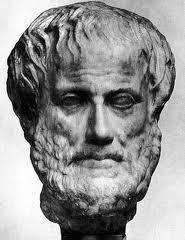Imre Lakatos Quotes

Blind commitment to a theory is not an intellectual virtue: it is an intellectual crime.
Imre Lakatos, John Worrall, Gregory Currie (1980). “The Methodology of Scientific Research Programmes: Volume 1: Philosophical Papers”, p.1, Cambridge University Press
Imre Lakatos (1978). “Philosophical Papers”
Imre Lakatos, John Worrall, Gregory Currie (1980). “The Methodology of Scientific Research Programmes: Volume 1: Philosophical Papers”, p.32, Cambridge University Press
There is no falsification before the emergence of a better theory.
Imre Lakatos, John Worrall, Gregory Currie (1980). “The Methodology of Scientific Research Programmes: Volume 1: Philosophical Papers”, p.35, Cambridge University Press
"Peirce's Theory of Inquiry and Beyond" by Thora Margareta Bertilsson, (p. 41), 2009.
Imre Lakatos, John Worrall, Gregory Currie (1980). “The Methodology of Scientific Research Programmes: Volume 1: Philosophical Papers”, p.8, Cambridge University Press
Imre Lakatos (1976). “Proofs and Refutations: The Logic of Mathematical Discovery”, p.5, Cambridge University Press
Imre Lakatos, John Worrall, Gregory Currie (1980). “The Methodology of Scientific Research Programmes: Volume 1: Philosophical Papers”, p.45, Cambridge University Press
Imre Lakatos, John Worrall, Gregory Currie (1980). “The Methodology of Scientific Research Programmes: Volume 1: Philosophical Papers”, p.50, Cambridge University Press
Imre Lakatos (1976). “Proofs and Refutations: The Logic of Mathematical Discovery”, p.2, Cambridge University Press
Imre Lakatos, John Worrall, Gregory Currie (1980). “The Methodology of Scientific Research Programmes: Volume 1: Philosophical Papers”, p.5, Cambridge University Press
Imre Lakatos, John Worrall, Gregory Currie (1980). “The Methodology of Scientific Research Programmes: Volume 1: Philosophical Papers”, p.68, Cambridge University Press
Imre Lakatos, John Worrall, Gregory Currie (1980). “The Methodology of Scientific Research Programmes: Volume 1: Philosophical Papers”, p.49, Cambridge University Press
Imre Lakatos, John Worrall, Gregory Currie (1980). “The Methodology of Scientific Research Programmes: Volume 1: Philosophical Papers”, p.117, Cambridge University Press
Imre Lakatos, John Worrall, Gregory Currie (1980). “The Methodology of Scientific Research Programmes: Volume 1: Philosophical Papers”, p.35, Cambridge University Press
Imre Lakatos, John Worrall, Gregory Currie (1980). “The Methodology of Scientific Research Programmes: Volume 1: Philosophical Papers”, p.8, Cambridge University Press
Imre Lakatos, John Worrall, Gregory Currie (1980). “The Methodology of Scientific Research Programmes: Volume 1: Philosophical Papers”, p.48, Cambridge University Press






